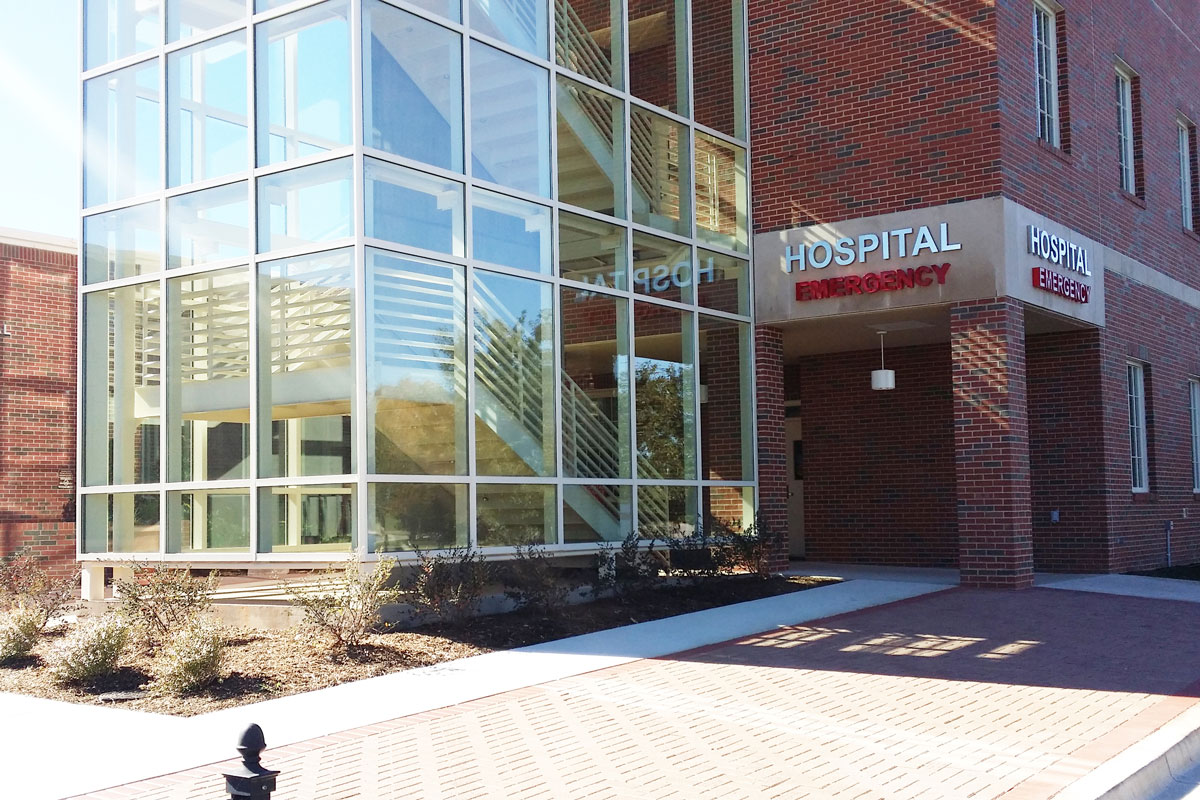 Anesthesia
Anesthesia
The Anesthesia Team is a group of dedicated, compassionate, and highly trained individuals who will make your pet or production/working animal as safe and comfortable as possible during procedures.
The Anesthesia Team includes anesthesiologists and licensed veterinary technicians (RVTs) who have been trained by anesthesiologists in all aspects of administering anesthesia. Our technicians perform under the supervision of the anesthesiologist, and are dedicated solely to providing anesthesia and pain management for both large and small animal patients.
Anesthesia is not without risk, and we understand that it can be hard to let your animal undergo anesthesia even when it is for the benefit of quality of life. Anesthesia for animals has come a long way and is safer than ever before. A well-trained Anesthesia Team further reduces your animal’s risk.
What to Expect
The Anesthesia Team works closely with your primary clinician throughout the anesthetic period to ensure the best continuity and quality of care for the patient.
All of the patient’s pertinent information, including medical history, current physical examination findings, and available diagnostic information (blood work, radiographs, etc.) will be reviewed and discussed by the Anesthesia Team.
Creating a Plan
A customized anesthesia plan will then be developed under the direction of the anesthesiologist. This plan will include the drugs used to produce and maintain anesthesia as well as the monitoring and supportive care to promote normal system function during and after anesthesia.
In addition to the Anesthesia Team members, a senior veterinary student will be assigned to the patient. This student will stay with the patient throughout the duration of the anesthesia and immediately post-anesthesia.
Most patients undergoing anesthesia will be fasted prior to anesthesia depending on their current health status and procedures being undertaken.
Recovery
While recovering from anesthesia, it is not unusual for the patient to be drowsy, and often times will be less active and perhaps sleep most of the evening and into the following day. For those patients who are not critical, or underwent minor procedures, they will recover in the anesthesia recovery room until fully awake and able to return to their overnight kennel or be sent home. Patients undergoing extensive procedures, or who require intensive post-operative care, may recover in our Intensive Care Unit (ICU), where our Anesthesia Team will work closely with the ICU staff to ensure a seamless transition for the patient’s post-anesthesia care.
Reducing Risks of Anesthesia
There are some things that should be done ahead of time to reduce the risks of anesthesia. These guidelines listed are based on the American Veterinary Medical Association (AVMA) guidelines for anesthesia.
- Let your veterinarian know if your animal has ever had a reaction to sedation or anesthesia.
- Make sure your veterinarian is aware of all medications/supplements (including over the counter) that your animal is receiving.
- Keep your animal healthy with regular preventive care and maintain a healthy weight.
- Take steps to prevent injuries to your animal whenever possible (avoiding emergencies that may require anesthesia).
- Follow your veterinarian’s instructions before anesthesia, especially with regards to withholding food and/or water.
- Follow your veterinarian’s instructions regarding any medications you should or should not give to your animal.
For more information on anesthesia, please see the AVMA article"When Your Pet Needs Anesthesia."
